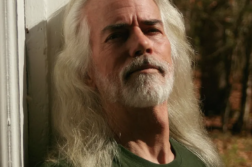EDMUND WHITE’S latest book, Arts and Letters, brings together 39 essays spanning nearly twenty years in the career of one of America’s most accomplished men of letters. In addition to his autobiographical trilogy—A Boy’s Own Story, The Beautiful Room Is Empty, and The Farewell Symphony—White has written several other novels as well as an earlier essay collection and a volume of short stories. His biography of Jean Genet won the National Book Critics Circle Award. He has also written a biography of Proust and a pair of memoirs about his years living in Paris.
White’s new essay collection compiles a gifted writer’s reflections on some of the most important writers of the 19th and 20th centuries. Thrown into the mix are his conversations with some of the world’s most intriguing painters, sculptors, and photographers, as well as entertaining and revealing celebrity portraits of the likes of Catherine Deneuve, David Geffen, Elton John, and others. I interviewed Edmund White in person last October.
— Jim Nawrocki






